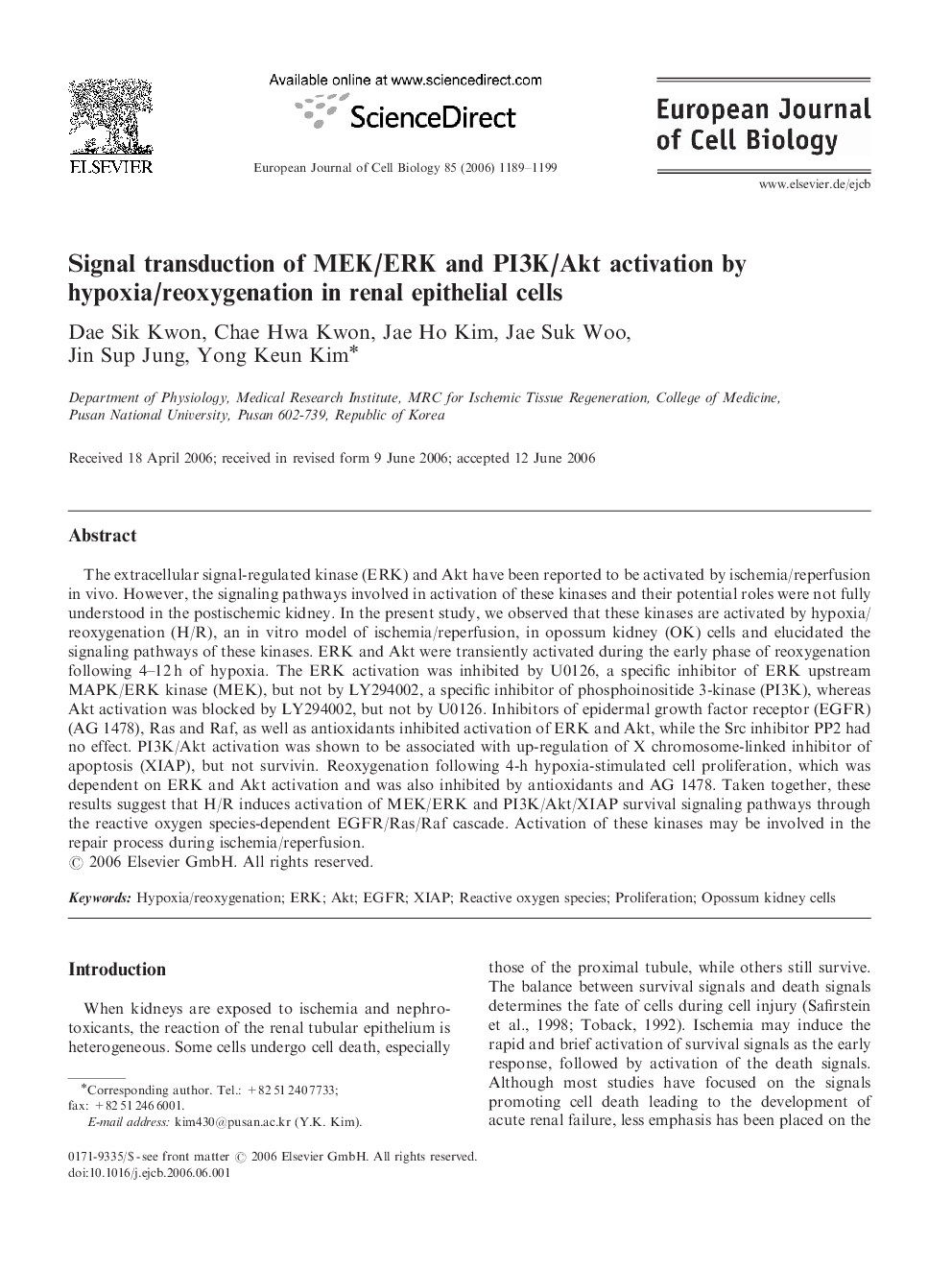| Article ID | Journal | Published Year | Pages | File Type |
|---|---|---|---|---|
| 2179110 | European Journal of Cell Biology | 2006 | 11 Pages |
The extracellular signal-regulated kinase (ERK) and Akt have been reported to be activated by ischemia/reperfusion in vivo. However, the signaling pathways involved in activation of these kinases and their potential roles were not fully understood in the postischemic kidney. In the present study, we observed that these kinases are activated by hypoxia/reoxygenation (H/R), an in vitro model of ischemia/reperfusion, in opossum kidney (OK) cells and elucidated the signaling pathways of these kinases. ERK and Akt were transiently activated during the early phase of reoxygenation following 4–12 h of hypoxia. The ERK activation was inhibited by U0126, a specific inhibitor of ERK upstream MAPK/ERK kinase (MEK), but not by LY294002, a specific inhibitor of phosphoinositide 3-kinase (PI3K), whereas Akt activation was blocked by LY294002, but not by U0126. Inhibitors of epidermal growth factor receptor (EGFR) (AG 1478), Ras and Raf, as well as antioxidants inhibited activation of ERK and Akt, while the Src inhibitor PP2 had no effect. PI3K/Akt activation was shown to be associated with up-regulation of X chromosome-linked inhibitor of apoptosis (XIAP), but not survivin. Reoxygenation following 4-h hypoxia-stimulated cell proliferation, which was dependent on ERK and Akt activation and was also inhibited by antioxidants and AG 1478. Taken together, these results suggest that H/R induces activation of MEK/ERK and PI3K/Akt/XIAP survival signaling pathways through the reactive oxygen species-dependent EGFR/Ras/Raf cascade. Activation of these kinases may be involved in the repair process during ischemia/reperfusion.
